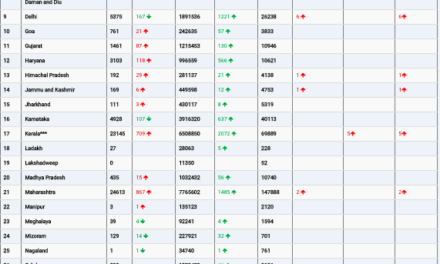A recent study published in Diabetes Care sheds light on the elevated cardiovascular disease (CVD) risks faced by women with type 2 diabetes (T2D) who were diagnosed with hypertension at an early age. Led by Hongwei Ji of Tsinghua Medicine, Tsinghua University, Beijing, the research underscores the importance of intensive antihypertensive therapy for this demographic.
The study delved into the intersection of hypertension, T2D, and gender disparities in cardiovascular health. It examined data from the ACCORD trial, which involved individuals with T2D randomly assigned to receive either intensive or standard antihypertensive treatment targets. Among the 3,792 participants who completed the trial, 49% were women.
Participants were categorized based on the age of hypertension diagnosis, with groups divided into those diagnosed early (< 50 years) and those diagnosed later (≥ 50 years). Over a follow-up period of 4.5 years, researchers assessed the incidence of CVD events, including coronary heart disease, stroke, heart failure, or cardiovascular death, across these groups.
The findings revealed a stark contrast in CVD risks between women with early-diagnosed and late-diagnosed hypertension. Women with early-diagnosed hypertension faced a significantly higher incidence of CVD events compared to their counterparts with late-diagnosed hypertension, with a hazard ratio of 1.47.
However, intensive antihypertensive therapy emerged as a mitigating factor, particularly for women. The study showed that intensive treatment reduced the excess CVD risk associated with early-diagnosed hypertension by 35% in women, compared to just 6% in men. This underscores the potential benefits of aggressive blood pressure management strategies, especially for women with T2D and early-onset hypertension.
Moreover, the research highlighted the impact of the timing of hypertension diagnosis on CVD risk. For each decade earlier at hypertension diagnosis, there was an 11% increase in the overall risk for incident CVD, predominantly observed in women who received standard rather than intensive antihypertensive treatment.
In light of these findings, the authors emphasized the significance of tailored treatment approaches for women with T2D and early-onset hypertension. “Women with type 2 diabetes whose hypertension was diagnosed earlier in life could substantially benefit from intensive over standard antihypertensive treatment,” the authors noted.
Despite the valuable insights provided by the study, it is important to acknowledge its limitations. The trial was open-labeled, and the sample size was relatively limited, which may affect the generalizability of the findings.
The study was supported by various funding bodies, including the National Natural Science Foundation of China and the National Institutes of Health, with the authors declaring no conflicts of interest.
This research underscores the critical need for personalized cardiovascular risk management strategies, particularly for vulnerable populations such as women with T2D and early-onset hypertension. By addressing these intersectional health challenges, clinicians can work towards reducing the burden of cardiovascular disease and improving outcomes for patients.












